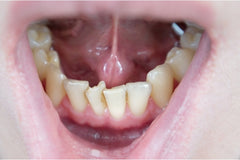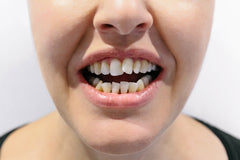Bonding and veneers are popular dental treatments today that can produce great results in patients who are suitable for treatment. They can help with minor aesthetic flaws, gaps between teeth, chips, worn edges, and more. Both can be suited to different people and used to achieve different results. Bonding doesn’t tend to be as intensive as veneers, so is it as good as veneers? Read on to learn more.
More About Dental Bonding
Dental bonding can be performed in a single session, and can get some really incredible results. This procedure is a good choice for those who have minor flaws, like gaps or chips. Dental composite is a putty-like material, and is used to alter the shape of the tooth. It can be moulded to fill out gaps and often looks very natural. In most cases, patients won’t have a full mouth of dental bonding. They may have just a few teeth done, and this means that bonding is often cheaper than a full set of veneers. However, it entirely depends on your needs.
Once the composite has been applied, it is then set using a curing light. Final adjustments can be made once the bonding is set, and you will be shown your new smile. Bear in mind that bonding may need to be done in conjunction with another treatment, such as aligners or braces to get your teeth in alignment first. Although Bonding may be able to address slight irregularities, it can’t completely straighten your teeth out. Bonding is ultimately an excellent solution to enhance your smile, but it’s also important to note that the composite resin material does not last as long as porcelain. It isn't as resistant to stains, and is also more resistant to chipping. You will still need to treat them like your regular teeth, and ensure you don’t use them as tools.
More About Veneers
Veneers are famous for creating many a-celebrity’s smile. However, they aren't always famous for their natural look. You really do need to be careful with veneers, as practitioners are not all created equal. A perfectly straight, white smile might sound great on paper, but when done by an amateur they can look blocky, too bright, and fake. Many people end up with teeth that do not suit their face at all and look too big for their mouths.
A veneer is an ultra thin sheet of laminated porcelain, and is shaped to fit onto your natural teeth. In most cases, your natural teeth will need to be filed right down before veneers are fitted. This can be uncomfortable, and many people must leave with a temporary set of veneers before going back and having the real deal fitted at a later date. Some people prefer veneers if they feel they have a lot of dental imperfections, but many don’t like them as they require a lot of dental work and your natural teeth can suffer. Some people report permanent pain and nerve damage when this treatment has not been performed correctly and with care. Veneers can, however, have a strength that is comparable to your own tooth enamel, so when they are fitted properly they should be chip-resistant until you need to have them done again.
Bonding or Veneers - Which Should You Have?
Veneers and bonding are very different, but they can create a healthier looking smile when you visit the right dental professional. Bonding is faster, cheaper than veneers, and recommended for minor issues. Veneers can create a more dramatic transformation and give you a more flawless smile, but they are expensive and take a lot of work. It’s important to note that neither of these treatments are permanent and you will need to have new bonding or veneers fitted later on down the line. Veneers cost thousands and may only last 15 years, so this is something to be aware of.
What Are The Pros and Cons?
Veneers are custom designed for each patient, and the porcelain used is very strong. You can pick your color, too, and they are highly resistant to staining. They can last 15 years or more, but will not last forever. It’s an invasive treatment and will likely cost you a lot of money. You may need to be vigilant and use night guards if you grind or clench your teeth as you sleep, or your veneers could end up sustaining damage.
Bonding creates a natural look and is great for addressing small imperfections. It is a cheaper alternative to veneers, but again, won’t last forever. You need to ensure you are as careful as possible with bonding, as it can chip if put under pressure or even if you eat the wrong type of food. Following your dentist’s advice is key.
Who Could Benefit From Bonding or Veneers?
Patients who could look into these treatments are those who would like to address discolored, chipped, cracked, or uneven teeth. If you simply want to enhance and improve your smile, you may be a candidate. You will need to set up a consultation with a trusted dentist to be sure.
Are There Other Options?
Of course, there are options if all you want is a straighter, more aligned smile. Clear aligners are a choice growing in popularity. These aligners are created to each individual’s specifications, and when worn for the specified time period (usually at least 22 hours a day), they will push your teeth into the proper position. This may take longer depending on the current condition of the teeth, and every few weeks new aligners will need to be created to make sure the teeth are lining up nicely.
Using a retainer once your treatment is complete will ensure that your teeth do not move. It’s especially important to do this in the weeks and months following your aligner treatment, as the teeth are more prone to moving back into the position they were in before at this stage. If you’d like a more uniform smile, get in touch with us today to find out how we can help you with our clear aligners!



















